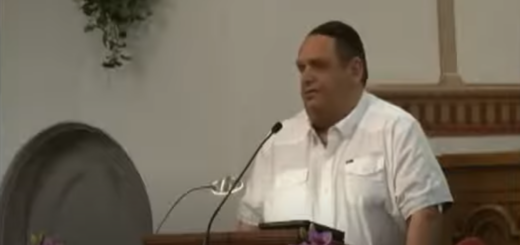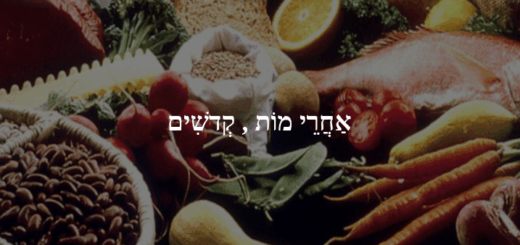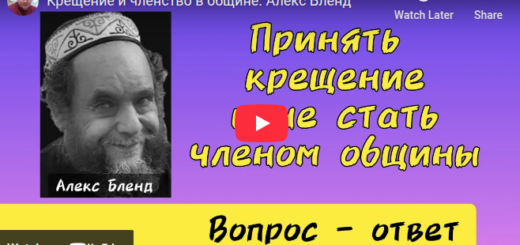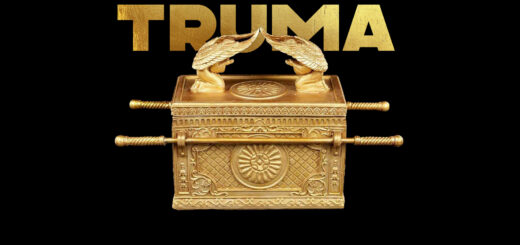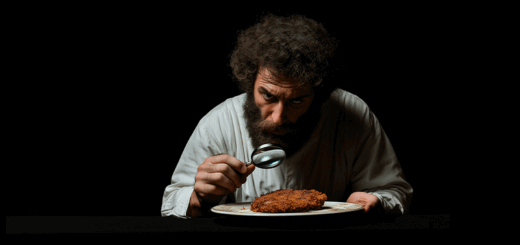Summary for Weekly Torah Portion Ekev. Businessman’s Memo. Dvarim (Deuteronomy) Chapter 8:1-20 by Alex Blend
This short article has been created with the help of AI instruments and reviewed by translator
Study of the weekly Torah portion of Ekev: an in-depth analysis of the commandments in Deuteronomy and their implications for business and life.
00:03 Understanding the significance of commandments in Deuteronomy 8.
- The chapter emphasizes the importance of obeying God’s commandments for a blessed life.
- Repetitions in teaching highlight different perspectives on the commandments to deepen understanding.
01:42 God’s guidance in the desert teaches humility and the importance of following commandments.
- The journey through the desert for 40 years was intended to humble and test the Israelites’ hearts.
- God sees our inner thoughts and intentions, emphasizing the need for personal commitment to His commandments.
05:09 God’s word sustains us beyond physical food during trials.
- True nourishment comes from God’s word, not just physical sustenance like bread or meat.
- 40 years in the desert taught reliance on God’s provision, evidenced by clothes and shoes that did not wear out.
07:05 God provides for humanity’s needs, including clothing.
- Men and women perceive clothing needs differently, with men favoring simplicity and women desiring variety.
- Biblical commentary suggests God’s care ensures that clothing remains enjoyable and not worn out.
10:42 Humility and recognition of divine support are essential for success.
- Acknowledge that personal achievements come from divine assistance, fostering humility.
- Remember past struggles in the desert to maintain gratitude and awareness of God’s care.
12:23 Humility and gratitude for God’s blessings in the Promised Land.
- The land is rich in resources, including wheat, barley, and fruits, symbolizing God’s provision.
- Learning humility through experiences in the wilderness emphasizes the importance of thankfulness in abundance.
16:09 Remember humility and divine providence in wealth.
- The importance of recalling one’s past struggles in the desert to appreciate God’s care.
- Wealth can lead to forgetting the blessings and trials that shaped one’s character.
17:53 Remember that God is the source of all success and blessings.
- Beware of forgetting God’s role in your achievements, as it may lead to pride.
- Reject the temptation to follow other deities, which leads to spiritual downfall.
20:54 The importance of abundance and supporting others in need.
- Encourages creating a surplus to help others and experience joy in giving.
- Emphasizes divine blessings for healing, peace, and family reconciliation.
Alexander Blend goes through the eighth chapter of Deuteronomy in detail, beginning with the phrase “every commandment,” and explaining that Moses repeats the same ideas but from different perspectives to deepen the people’s understanding and motivation. He emphasizes that the trials of the wilderness are a way for people to learn about themselves, to see their dependence on God, and to understand that it is not bread that nourishes, but the word of God. Examples of divine provision are given—manna, clothing that lasts, health—to show that everything comes from the Creator. Rabbi Alexander warns of the dangers of pride in a state of abundance, when it is easy to forget the source of blessings. He concludes with a blessing on his listeners, wishing them health, abundance, peace, and spiritual closeness with God.
The Transcript:
Shalom, dear friends! Alexander Blend is here with you.
And with God’s help, we continue to study the weekly chapter of Ekev.
Today we will read the eighth chapter of the book of Deuteronomy, the whole commandment.
This phrase really sounds in the singular and can mean the entire law, all the commandments, this entire holistic complex of the Almighty’s commands.
Or it could mean all the commandments in a collective sense, as in Russian they say “fish”, having “fishes” in the plural.
“All the commandments which I command you today, try to comply, so that you live and multiply and would come and inherit the land.”
Here, some half-asleep student from the back row, sitting in Moshe’s (Moses) class, could ask:
“Teacher, you tell us the same thing over and over again. Did we not understand?
We have already, perhaps, understood from the first time around that yes, we must observe the commandments, laws, and regulations in order to be blessed, so that the Lord will bless us and we receive it. For our farms, for our livestock, for our agriculture. Why do you keep repeating this?”
This is not the first time Moshe, in fact, repeats this. Every time from a new perspective, each time revealing a new facet, a new depth. Teaching a person a new understanding, to make it easier for him to keep the commandments,to encourage him not just to observe, but to try to observe, that is so you yourself want to comply.
Second verse:
“And remember the whole way which the Lord your God led you these forty years in the desert in order to humble you…” We’ll talk about this later.
“…To experience, to know what is in your heart: whether you will keep His commandments or not.”
A very important question arises here. The Lord is the seer of hearts. He sees the hearts and tests the inward parts. No one doubts that he sees a person’s heart better than the person himself. Does He really need a forty-year social experiment in order to understand something about some person or some people, about one of us?
The Almighty speaks here through Moshe. Moshe reveals His plan: “I led you through the desert for forty years so that you could learn to experience for yourself”.This is our joint experiment.”I teach you to understand your heart to know whether you will keep the commandments.”
Will you keep the commandments if you are full and it will seem to you that you don’t need God? Will you keep the commandments if you are hungry and you will feel like God has abandoned you? Will you keep the commandments if a disaster like Holocaust happens and a huge part of the people will die, many people close to you? Will you keep the commandments? This is a purpose of this test, it is for the human heart.
“I humbled you and sent hunger upon you and fed you manna, which you didn’t know about before, and your fathers did not know, in order to give you knowledge, not just to teach so that you become knowledgeable, so that you gain such experience that you have no doubts.”
This is what it means to know.
That man does not live by himself, not by bread itself, but by every word that comes from the mouth of God man lives.
When we eat something, be it lasagna, steak, or a piece of bread and butter, or just a piece of bread, it seems to us that this bread is what satisfies us. But we must remember what we read in the very first chapters of the Torah, in the very first chapters of the book of Bereshit: Everything that the Lord created, everything was created by the Word of God. When we eat bread, we eat strength, which is embedded in this bread by the word of God and by the word of God, it is revealed everywhere. One must see that it is not the bread itself that feeds you, that the calories are not in the bread, although in the physical world this is how it is revealed. But in reality, it is the word of God that feeds and gives you life, and this walking in the desert should have taught you this experience. Neither bread, nor meat, nor fish, nor the flesh of any living creature or anything plant-based, it is not it that nourishes you, again, although it seems so in the physical world,the word of God satisfies you, the word by which all this was created, God can give you strength with his word, give you power, through manna, about which your fathers and you yourself knew nothing, and in any other way.
Remember that behind everything you have, behind everything that gives you strength, there is Him.
“God led you through the desert for 40 years so that you would learn and know this, your clothes did not wear out on you for 40 years walking through a desert where there were no boutiques or even bazaars. One couldn’t buy anything new.
“Your clothes didn’t wear out on you…”
“…and your leg didn’t swell…” for 40 years…
…The shoes did not wear out and did not become uncomfortable…
And for those who walked barefoot, the care of the Almighty replaced shoes. The clothes did not wear out for 40 years. It’s no longer just about food,but also about ready-made clothing, about the product of human hands, clothing, fabric, which is supported by the same Word of God from decay, from deterioration. The Almighty, in other words, feeds, supports and clothes too, it can be translated this way, many people talk about it. It’s much easier for us men to have a set of clothes, some kind of wardrobe, as far as men’s clothing goes, that won’t wear out in 40 years, well, great! One opened the closet, put on what fell out of the closet and is good to go. Men often do this. For a woman, if she has a dress, two dresses, three dresses, five dresses that she won’t be able to change for 40 years, for her it would be just a nightmare, of course women want to change clothes. Some commentators say that this non-decay also means that the clothes changed on women, they did not become worn out not only in the material sense, they did not become outdated, they continued to please women, there are some midrash that speak of such care from the Almighty. Well, maybe that’s how it was, although, of course, it’s not written directly in the text.
“You understood, you recognized in your heart, which, just as He instructs, also punishes…” and punishment here does not necessarily have to take the form of suffering, it might teach some kind of moral, sometimes it instructs through certain hardships, but not always.
“Just as a man disciplines his son, Adonai instructs, just as he punishes, God instructs you.”
A man does not punish other people’s children, we try not to interfere in other people’s upbringing and sometimes punishment is a manifestation of care for the child that only a father or mother can do.
And again, here it says: “You will understand this, you will know this from your own experience; not believing, not assuming, not succumbing to suggestion, you really should have learned in the desert that the attitude of the Almighty towards you is like the attitude of a father towards his son…”
This is both instruction and care, you have seen both.
“And when you saw this, you understood that nothing here was yours…”
The people in the desert, all their work was to collect manna. Imagine that a whole generation of people has grown up who have never gone to work in the sense that is accepted today. Even those who had cattle did not eat this cattle, but saved it for the purpose of entering with it to the land of Israel, all in all one did not earn his living, an entire generation did not work for their livelihood, but spent all their time on such a subsistence minimum or subsistence maximum, collecting manna in the desert.
And what kind of humility does that lead to? It leads to the feeling that you are not really you, and everything you do in this world, everything you can do, everything you think you have done, is actually a gift from the Almighty. All the good deeds you do are not you, they are from the Almighty. And this is humbling, in the sense that you become less of yourself in terms of merit, you take less and less credit for your own achievements. And then, when you come to the country and build cities, and your cattle multiply, you develop the country’s economy, when you suddenly think, wow, how cool I am, how I developed, how I got everything going, you will remember the desert, you will remember that, in fact, it is not your cattle, and not your meat that feeds you, but the word of the Almighty. This is the humility that the talk is about: to learn to understand that everything is not from you. Make it known, something that you constantly remember, constantly in your consciousness, in your worldview, everything that happens, you know that it is not from you. The cities that you built are not you and in the punishments, too, to see the hand of the punishing father. On the other hand, this is what gives joy in sensation of how God gives you so much, and how He cares for you.
“Keep the Lord your God’s commandments to walk in His ways and fear Him…”
“…When you remember this, your path in Egypt, when you remember how the Lord cares for you, you remember that He is your father, you will return to this humble state and you will keep the commandments of the Most High.
“For the Lord your God is bringing you into a good land. It’s a land of streams and pools and springs that flow through the valleys and down the hills; to the land of wheat, oats and grapes, and figs and pomegranates in the land of olives, butter and honey, a country where you will not eat your bread in poverty, in which you will not lack anything, the country where there are iron stones and rocks from which you will mine copper, land that is not only rich in fertility at the top, but the earth is rich in minerals. And you will eat and be satisfied and you will bless your God for the good land that I gave you.”
From here we learned the tradition of blessing God after eating, when you are full and that is why there are prayers after meals with thanksgiving for the food.
Moshe says: “God led you through the desert, taught you humility, taught you to live in poverty, to see His care in poverty…”, but while it is good to see God’s care in poverty, it may be harder to see God’s care in prosperity when you have everything.
“Beware!”
“Lest you forget the Lord your God that you might no longer keep His commandments, His judgments, and His laws which I command you today, so that you don’t suddenly eat too much and get full, built good houses for yourself and settle down completely in the land, and your flocks and your herds will multiply, and your silver and gold will be abundant, and all that you have will be in abundance, and your heart will be exalted, and you will forget the Lord your God who brought you out of the land of Egypt, from the house of slavery. Who led you through the great and terrible desert in which there are snakes and asps and scorpions and thirst when there is no water, who gave you water from the flint rock. When you live in complete abundance, it will be easy for you to forget your childhood, in which you did not become a waif in the desert, in a place where there is no one to take care of you, as the Lord took care of you there. Where did the Lord bring you out from, where have you been? The same Lord who fed you manna in the desert, which neither you nor your fathers knew about…” “…To make you humble, to test you, to give you good in the future, so that I could give you a lot and it wouldn’t hurt you…”
A reminder for a rich man to remember being in the desert where he had nothing and the Lord took care of him and remember that there is no difference between the fact that he is rich and the Lord takes care of him generously, or he was in the desert and the Lord took care of him. To remember that this is the same situation.
“And now, if you forget all this and you say in your heart: “This is my strength! It was the power of my hand that allowed me to do all this. I am responsible for my own prosperity, I achieved everything myself, nobody helped me.” Remember the Lord your God, because it is He who gives you the strength to succeed, that He may keep the covenant which He swore to your fathers like today. Beware! Don’t forget who gives you all this. He didn’t give, but gives, constantly gives,like today, remember this.”
A very dangerous thought may creep into your heart that you did all this yourself, you may lose the knowledge you gained in the desert, forget the lessons learned in the desert. What will happen then?
“And it will be, if you forget through oblivion the Lord your God, and follow other gods, and serve them, and worship them. I am your witness today that you will perish then.
Like those very nations which the Lord destroys before your face, so you too will perish…”
Again “Ekev”/”If”, as at the very beginning of our weekly chapter.
“…Because you won’t listen voice of your God in everything you get, in all its achievements, in all your successes, in built houses, in planted vineyards, in the collected olives.”
“Listen to the voice of your God, look, you see the hand of your God, never forget that it is He. You will receive blessings.”
This is a recipe for how to make sure that the blessing does not spoil you.
For 40 years He taught you to look into your heart. Will you keep His commandments when it becomes difficult for you to keep His commandments?
“…And I brought you back, and I instructed you, and I taught you…”
As in this case. When you felt everything, when you have lost everything, you must keep His commandments. In this case, when you have acquired everything, you also need to keep his commandment.
This is the lesson of chapter 8 of the book of Dvarim. A reminder for a successful businessman. And we’ll stop there.
________________________________________________________________________________
The Holy Blessed One will bless those who study His Word, seek His will, seek His face.
The Holy Blessed One bless your families, your husbands and your wives, your sons and your daughters, your grandsons and granddaughters, great-grandsons and great-granddaughters.
The Holy Blessed One will bless your parents, fathers and mothers, grandmothers and grandfathers, great-grandmothers and great-grandfathers.
Take care of them!
The Holy Blessed One will give food to those in need of food, will send worthy work, so that there is time for communication with family, for studying the Scripture, so that there is an abundance in the house and the opportunity to help others and the joy of helping others.
The Holy Blessed One will bless and heal the sick, give wisdom to doctors to heal. He will support and strengthen those who accompany the sick, to be near them. The Holy Blessed One will give peace to families in which there is no peace, will reconcile fathers and children, husbands and wives, brothers and sisters.
The Holy Blessed One bless you and your homes and all who are with you with all the abundance of his endless blessings.
This was Alexander Blend. Thank you for listening to me.
May his memory be a blessing!

